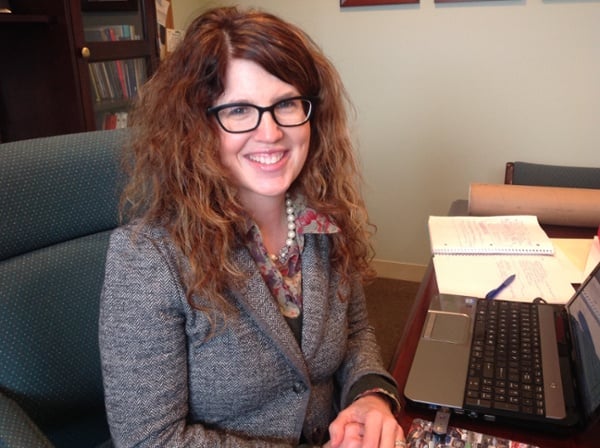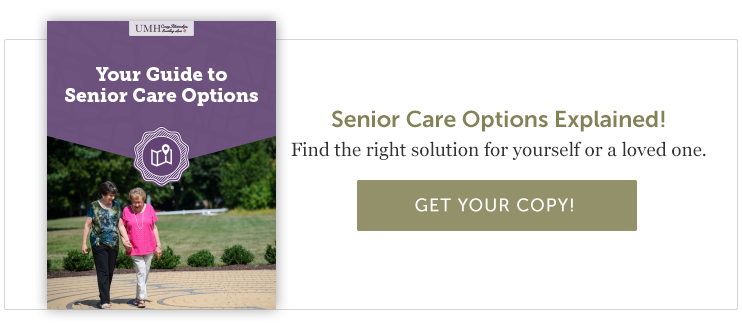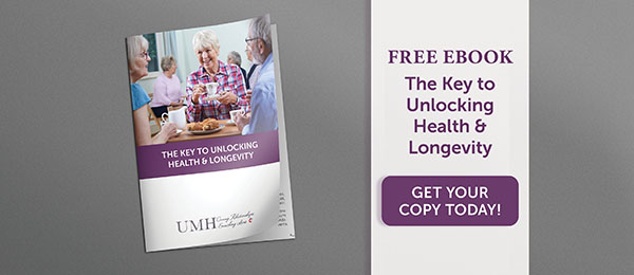Recognizing the Mental & Emotional Struggle for Male Caregivers
assisted living | Senior Living Communities CT | senior health | senior health tips | Independent Senior Living | healthy living | independent living in ct | aging well
The number of Americans aged 65 and older is projected to nearly double from 52 million in 2018 to 95 million by 2060, and the 65-and-older age group’s share of the total population will rise from 16 percent to 23 percent. The current growth of this population, driven largely by the baby boom generation, is unprecedented in U.S. history. What does this mean for the increasing numbers of seniors who require caregiving? For one, it means that the gender stereotypes once dominating caregiving responsibilities have begun to shift.
More men are needed to embrace the role of caregiver for aging loved ones than ever before, and the latest research shows that male caregiving numbers are rising. 40 percent of family caregivers, amounting to roughly 16 million people in the United States, are men. Out of these 16 million male caregivers, about half are doing so by choice, 63% identify as primary caregivers, 49% are assisting an aging parent or in-law, and 13% are supporting a spouse.
The Told & Untold Burdens Felt by Male Caregivers
Male caregivers bring much to the table as the aging population begins to rely on them more heavily. But there are some challenging realities inherent in this shift. Over half of male family caregivers in the most recent Caregiving in the U.S. survey found it moderately to very difficult to help recipients with their personal, intimate care needs. 72 percent of all male family caregivers who performed medical and nursing tasks indicated that no one prepared them to do so. And the survey data showed that male family caregivers were more likely to be working than female ones, with the large majority doing so at 40 or more hours per week.
All of this can add up quickly to an overwhelming amount of stress on male caregivers. According to a recent study exploring male caregivers’ emotional burden: “A caregiver’s relationship status with their recipient, the caregiving intensity and the types of performed tasks impact their burden and self-esteem. For example, even though daughter caregivers experienced a higher burden level than son caregivers, sons reported lower self-esteem in some cases.”
While some previous studies have documented that, compared to women caregivers, men have faced lower levels of depression, strain and psychological distress, other studies have disputed these findings. And for various reasons, men may underreport the level of burden they experience. Furthermore, some men are even less likely than women to utilize caregiver support systems.
Prioritizing Mental & Emotional Health in Caregiving
Regardless of gender, even the most well-informed, well-balanced and successful caregivers battle with feelings of frustration, stress and sometimes even resentment. So for male caregivers who find themselves struggling with the burdens explored here, mental and emotional health can become compromised. Many are challenged to navigate these uncharted waters, and they often do so without the resources and support network needed to maintain peace of mind.
The stress and neglect on a caregiver's mind and body does not make for a healthy person. While there are lots of ways male caregivers can manage the demands of senior caregiving in a healthier, more effective way, there are also some situations that present too large a burden to be carried by the caregiver under their current circumstances. It’s incredibly important for male caregivers to recognize their own limits and reach out when the burden has become too heavy to carry.
It’s natural for a male caregiver to feel guilt over struggling in his caregiving role. But there’s no need to run oneself down trying to do everything for an aging loved one, or to suffer through one’s own declining mental and emotional health. Male caregivers in this position should be encouraged to look into the options available to them and make informed decisions about what’s in everyone’s best interest.
Exploring Resources & Alternative Options for Male Caregivers
When a caregiver’s mental and emotional health is significantly impacted, it’s time for a break—as well as some exploration into alternative options. Male caregivers suffering from these issues might want to consider the following:
- Home Care: Home care can be a great option for caregivers who still need to leave for work or other obligations. These services range from strictly medical attention to personal care, household assistance or simple companionship. This option may be especially attractive to male caregivers who feel strongly about keeping their loved one at home.
- Adult Day Care: If an aging loved one is able to comfortably travel out of the home, an adult day care community might be the right fit. This care arrangement offers supervision, nutrition, socialization, rehabilitation and transportation services.
- Respite Care: Respite care is like a bridge between home living and assisted living. For this arrangement, the aging loved one stays for a short time (usually less than four weeks) in an assisted living community, allowing critical time and space for the caregiver to de-stress and refresh. It can also introduce reluctant loved ones to the concept of assisted living in a very tangible way.
- Assisted Living: Caregivers often choose this option when it becomes apparent that it is no longer safe or feasible for their loved one to remain at home. Assisted living communities offer around-the-clock care for seniors, including attention to all their medical, personal, household and transportation needs. It’s important for caregivers to research communities and find the one that feels right for them AND their aging loved one. This is a long-term arrangement, so look for a community that offers opportunities for accessing quality healthcare, socializing and learning new things.
- Rehab: A short or long-term rehab stay is usually required if your loved one will be recovering from an injury, surgery or prolonged illness. Rehab centers offer more intensive medical intervention, including monitored nutrition, medication administration, physical therapy and personal care.
- Memory Care: This specialized form of care can dramatically improve quality of life for a senior diagnosed with Alzheimer’s or dementia. Quality memory care communities give seniors and their families priceless peace of mind surrounding the difficult issues that arise from dealing with cognitive decline.
Senior caregivers, regardless of gender, are called upon to do so much, and sometimes the care requirements are more than they can handle on their own. To preserve mental and emotional health—while providing the level of senior care your aging loved one deserves—be sure to fully understand your options for support.
For information and insight on how to thrive as a caregiver, download your free copy of The Essential Caregiver's Guide.
To find out how United Methodist Homes provides a wealth of offerings and opportunities to support the health and wellbeing of our residents, contact us today or schedule a complimentary visit now.
About Elizabeth Bemis
In 1998, I drove past an assisted living community construction site, learned that it was part of United Methodist Homes and realized the next stop on my professional journey was to work for a mission driven organization. Soon after, I joined the team as Executive Director of our Middlewoods of Farmington community and later served as Regional Manager for the Middlewoods properties before accepting my current role as Vice President of Marketing, Promotions, and Assisted Living Operations. I enjoy spending time with my family, cooking, reading, walking, and love working alongside our staff, residents, and families to build strong communities that reflect the mission, vision, and values of United Methodist Homes.

Our Blog is a 2016 Platinum Generations Award Winner! The Generations Award is an annual international competition for excellence in senior marketing recognizing professionals who have communicated to the 50+ Mature Markets.





